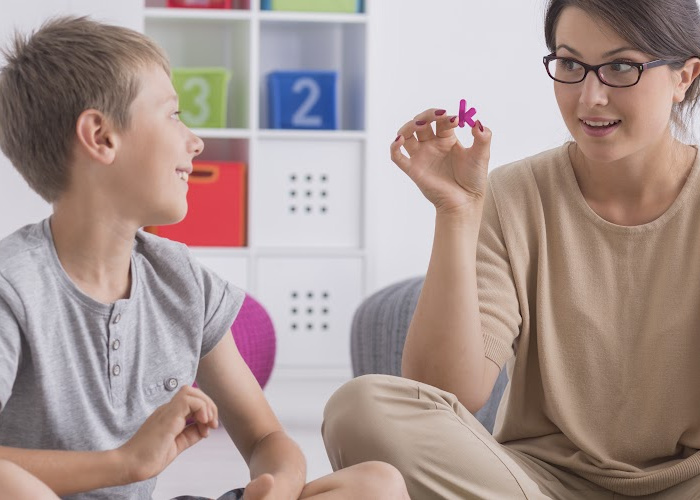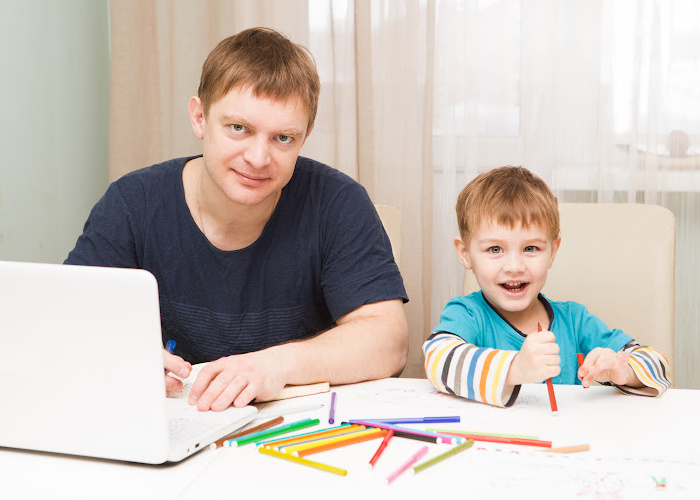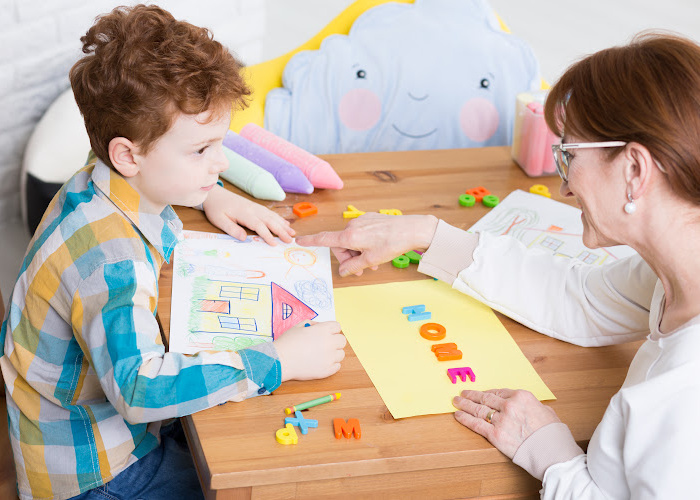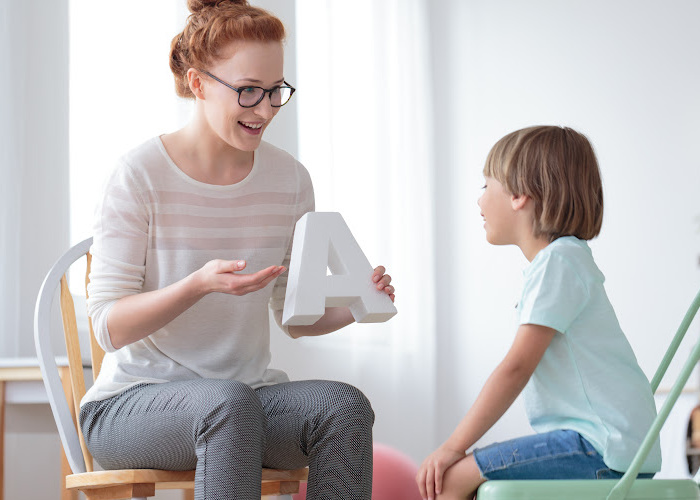It's crucial to know that students with autism and ADHD need special study strategies. Autism…

How to Help an Autistic Child Speak
Helping an autistic child develop speech and language skills can seem daunting, but is extremely rewarding.
How to help an autistic child speak starts with understanding their unique challenges and employing proven techniques to build communication abilities. With dedicated support from parents and caregivers, most children on the autism spectrum can learn to effectively express themselves through speech.

Use Visual Aids and Sign Language
Many children with autism spectrum disorder (ASD) are visual learners. Using pictures, symbols, sign language, and gestures can help build understanding and aide in communication. Simple picture exchange systems allow a child to hand you an image to get their needs met before speech develops. Incorporating sign language into your verbal communication also provides visual reinforcement.
Create Opportunities for Communication
Surround your child with language and give them opportunities to practice communicating. Narrate your actions out loud, describe what you’re doing, and talk to your child throughout the day. Provide choices to encourage them to communicate preferences. Read books together and point out pictures. The more words your child hears, the more their vocabulary will grow.
Use Modeling, Prompting and Repetition
Model simple words and phrases for your child to imitate, like labeling objects while playing. Provide a verbal prompt like “What do you want?”, then model “I want ball” when they point to it. Use repetition and positive reinforcement so they can learn to initiate speech independently. Maintain wait time after asking questions so they can respond.
Focus on Turn-Taking and Imitation
Engage your child in simple turn-taking games like peek-a-boo, patty cake, and animated toys. These interactions encourage vocal play and back-and-forth conversation. Imitate your child’s coos and babbling to provide a model for communicative turns. Expand on what your child says by adding a word like “ball”.

Pursue Speech Therapy
A certified speech-language pathologist can provide personalized strategies to improve your child’s communication abilities. They will identify current levels, set functional goals, and design activities tailored to your child’s interests and learning style. Articulation therapy targets pronunciation while social communication therapy builds conversation skills.
Consider Augmentative Communication
For nonverbal children, augmentative and alternative communication (AAC) systems like picture boards, speech generating devices, and assistive technology give them a way to communicate. A speech therapist can help identify appropriate AAC tools to meet the child’s needs.
Create a Language-Rich Home Environment
Language intervention starts at home. Surround your child with spoken and written words throughout your home and daily activities. Speak to your child often in simple phrases. Limit background noise and distractions. Provide a variety of books, song books, magnetic letters, alphabet puzzles, and other language materials.

How to Support Your Child’s Communication Development
How to help an autistic child speak requires understanding their needs, cooperating with therapists, and providing communication support. But most importantly, it means believing in your child’s ability to develop speech and language.
Respond to All Communication Attempts
Value all your child’s efforts to communicate, whether through speech, gestures, or AAC devices. Respond promptly and consistently to reinforce that their communication is effective. Expand on their words and model more language. Avoid correcting or interrupting your child when they are trying to communicate.
Use Your Child’s Strengths
Identify activities your child enjoys like drawing, puzzles, music, or videos. Use their preferred interests to motivate communication and make speech therapy fun. Incorporate visuospatial strengths by pairing words with pictures and written text. Tap into auditory and memory strengths by reading the same books and singing favorite songs over and over.
Remain Positive and Patient
Your child will progress at their own pace. Avoid putting pressure on them to speak or showing frustration. Remain calm, upbeat and encouraging in the face of communication challenges. Celebrate each tiny step forward. With time and consistency, your patience and positivity will foster speech development.
Partner With Your Child’s Therapists
Work closely with your child’s speech-language pathologist, occupational therapist, and other providers. Ask about activities to practice at home between therapy visits. Coordinate with therapists to ensure consistent strategies across settings. Share updates on progress and challenges to inform treatment plans. A team approach facilitates optimal growth.
Conclusion
How to help an autistic child speak is a journey that requires commitment, creativity and compassion. But hearing your child’s voice and seeing them light up when their message is understood makes every ounce of effort worthwhile.

Frequently Asked Questions
Got questions about helping your autistic child speak? This FAQ has simple answers to help you.
When Will an Autistic Child Speak?
The age at which an autistic child begins to speak can vary greatly. Some may start speaking at a typical developmental age, while others may take longer or may not develop speech at all. Factors influencing this include the severity of the autism spectrum disorder, early intervention, and individual differences.
How Can I Help My Nonverbal Autistic Child Talk?
You can help by engaging in speech therapy, creating a communication-friendly environment, using augmentative and alternative communication (AAC) systems, encouraging play and social interaction, focusing on nonverbal communication cues, and using visual supports and assistive devices.
Why Do Some Autistic Children Not Speak?
Some autistic children may not speak due to challenges with social communication, sensory processing issues, or developmental differences in their speech and language areas. It’s important to understand that nonverbal doesn’t mean they can’t communicate; they might use other methods like gestures, AAC systems, or writing.
How Do You Calm a Nonverbal Autistic Child?
Calming strategies include creating a predictable environment, minimizing sensory overload, using visual aids for communication, providing comfort through familiar objects or activities, and understanding and responding to their nonverbal cues effectively.
How Can I Do Speech Therapy at Home for Autism?
Speech therapy at home can include practicing exercises provided by a speech therapist, using play-based activities to encourage language development, creating a routine that includes time for practicing communication skills, and using AAC systems and visual supports.
Do Nonverbal Autistic Children Eventually Talk?
Some nonverbal autistic children may develop speech as they grow, especially with early intervention and consistent support. However, it’s important to recognize that some may remain nonverbal but can communicate effectively through other means like AAC systems.



This Post Has 0 Comments